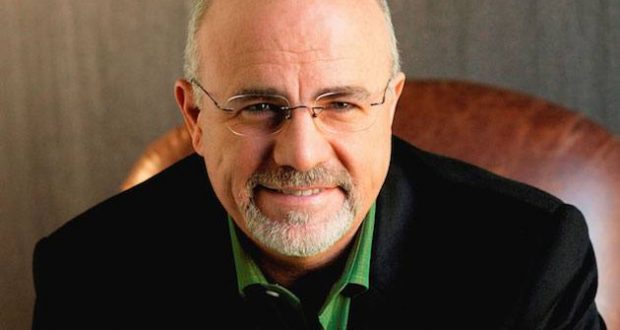Need some financial advice? Debt and income crisis? Pay off the house mortgage first? Check cashing? Taxes? Credit Cards? Check out what folks are asking Dave Ramsey.
Work first, play later
Dear Dave,
I brought about $15,000 in student loan debt into our marriage. I’m 26, my wife is 27, and we’ve been married a little over a year. During that time, our parents have helped us out with financial gifts occasionally. Whenever this happens, my wife and I get into an argument. She likes to use the cash they give us to have fun, but I think we should use it to pay down debt and get our finances in order. What is your opinion?
Kent
Dear Kent,
If your parents didn’t specify what the money is for, then it’s up to you guys to decide together how it will be used. In my mind, the fun needs to be put on hold for a while.
You’ve already told me you have at least $15,000 in debt. If there’s more debt in the picture, I’d advise listing all your debts, and begin knocking them out from smallest to largest using the debt snowball system. Debt is risk, and as long as it’s around it’s eating up your largest wealth-building tool—your income.
I’m sure your wife is a good, smart lady. But it’s time she started being a little more mature when it comes to financial matters. Let her know how important this is to you and why it’s so important to your future as a couple. You two should be working together and getting your financial house in order as a team.
I recommend treating the money from your parents just like a paycheck. That means including it in a written, monthly budget, and taking care bills, debt, and any other financial responsibilities you have first. Trust me, there’ll be plenty of time for fun later. The amount of student loan debt you have isn’t astronomical, but it does need to be cleaned up as fast as possible.
Once that’s taken care of, you’ll be able to really concentrate on saving and investing—and yes, some fun along the way!
— Dave
If you need a co-signer, you’re not ready
Dear Dave,
My fiancée and I want to make an offer on a house. She has a lot of late payments and a bad credit record, though, but she is working hard to manage her money better and get out of debt. I don’t make enough money to get a home loan by myself, and I have some debt to pay off, too. In order to help us out, my aunt and uncle said they are willing to co-sign a mortgage loan for us. What do you think of that idea?
Evan
Dear Evan,
Here’s a simple, solid piece of advice for anyone looking to make a purchase of any kind. If you need a co-signer, you’re not ready to make that purchase—period. I’m not trying to beat you up or anything, but it’s way too soon for you two to be thinking about buying a home. I mean, for starters you’re just engaged right now.
When a lender requires a co-signer, it basically means they don’t believe you’ll pay back the money. And besides, you two don’t need a house now or right after you get married. The two of you should get married, and live in a decent, inexpensive apartment for a while. During that time, you both need to work hard on paying off all your debt. After that, save up an emergency fund of three to six months of expenses. Then, start setting aside cash for a down payment on a modest home.
When it comes time to buy a home, I recommend a 15-year, fixed rate loan with a down payment of at least 10%. Twenty percent is better, because it will help you avoid having to pay PMI (private mortgage insurance). Make sure the monthly payments on the loan are no more than 25% of your combined take home pay. Keeping the payments at 25% or below will make it easier to address other important financial issues, like saving and investing.
Your aunt and uncle are obviously generous people, Evan, but they’re a little misguided in their offer. At this point, helping you two buy a house—something you obviously can’t afford—would be a huge burden instead of a blessing.
—Dave
READ: Dave Says – More than any amount of money
Does my mom need long-term care insurance?
Dear Dave,
My dad passed away about a year ago, but he left my mom in really good shape financially. They never had any consumer debt, the house is paid for, and they had about $1 million in assets. Dad also left her a $500,000 trust. Mom is going to be 60 next year. She is in good health, but considering her age and financial situation, do you think she needs long-term care insurance?
Darby
Dear Darby,
I’m so sorry to hear about your dad. Losing a spouse, or a father, is tough at any age. The good news is your dad did a great job of planning to take care of your mom. He left her in fine shape money-wise, but yes, she needs long term care insurance and a good estate planner. You need to help your mom do everything possible to handle her situation wisely.
I usually suggest folks wait until age 60 to buy long-term care insurance, because the likelihood of filing a claim before then is very slim. In fact, about 95% of long-term care claims are filed for people over 70. That’s why, in most cases, it doesn’t make sense to get long-term care insurance earlier than age 60.
Insurance isn’t a one-size-fits-all kind of thing, though. If someone has a family history of illness or other health issues at a younger age, they may need to get long-term care insurance earlier. But you shouldn’t buy long-term care coverage at a young age just because you’re paranoid of what might happen, or because you think you’ll save money. That’s just not true.
In the event your mom becomes unable to take care of herself at some point, long-term care insurance would be an absolute necessity. The cost of nursing home care these days is astronomical. Again, your mom is in a great place financially, but a prolonged stay in a nursing home somewhere down the road could eat up her nest egg in a hurry.
Long-term care insurance is a wise part of any good asset management plan.
—Dave
 Metro Voice News Celebrating Faith, Family & Community
Metro Voice News Celebrating Faith, Family & Community 








